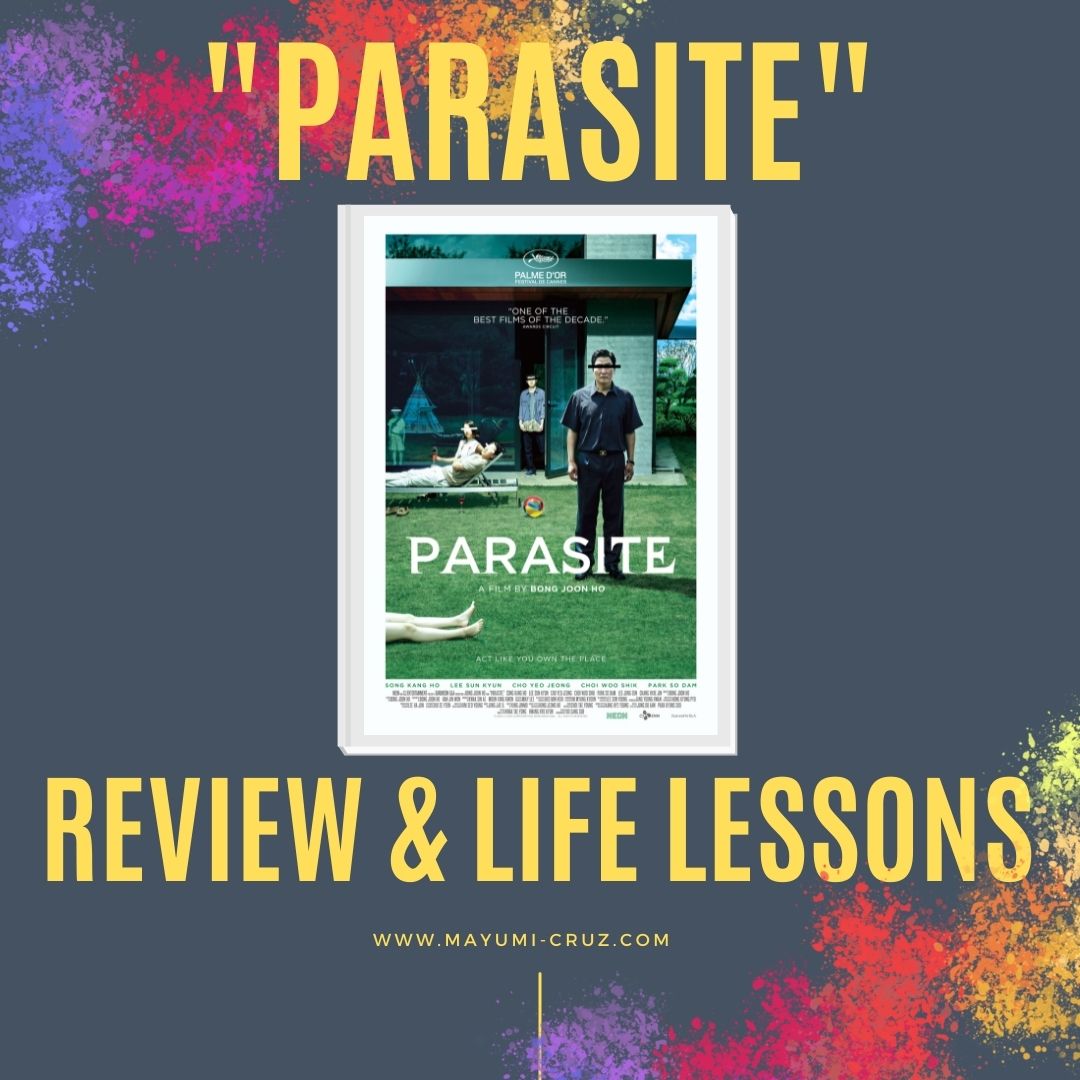"Parasite:" Review and Life Lessons
A parasite by any other name is still a parasite.
‘Parasite’ is a South Korean movie directed and co-written by Bong Joon-Ho, known for his meticulous directing, blending of genres, and social critique.
This film has amassed quite a number of awards, most notably the distinguished Palm d’Or, the highest award given by the Cannes Film Festival in 2019, and Best Director, Best Picture, Best Original Screenplay and Best Foreign Language Film at the 2020 Academy Awards.
I whole-heartedly agree that this film deserved the prestigious awards it collected over many award-winning bodies around the world. Excellent cinematography. Acting-wise, the actors delivered stunning performances. The plot was airtight, the direction superb.
Reviews of this film noted that it tackles the social disparity and class conflict in our present-day society.
One review stated that Parasite outlines how the working class are forced into conflict against one another, fighting for scraps, while families like the Parks live a comfortable life, fueled by the labor of the many individuals working beneath them.
Bong Joon-ho has this to say about the film: “Because the story is about the poor family infiltrating and creeping into the rich house, it seems very obvious that Parasite refers to the poor family. . . But if you look at it the other way, you can say that rich family, they’re also parasites in terms of labor. They can’t even wash dishes, they can’t drive themselves, so they leech off the poor family’s labor. So both are parasites.”
I beg to disagree.
There are only two parasites here, not three.
Here’s why.
The movie’s story evolves around three families whose lives are inadvertently shaped and changed by circumstances, some of which are brought about by themselves and some by tragic accidents.
Two of these families are parasites, living off on the kindness and generosity of the rich Park family who owns the house. The two parasite families rely on the Parks for their income, food and shelter, deceptively living inside their house, even competing with each other.
They are two different kind of parasites, though.
One family, namely Moon-gwang and Geun-sae, are parasites out of necessity, in an attempt to avoid loan sharks.
The other family, namely the Kims, are parasites out of their desire to experience comfort and luxury with little to no hard work by conning the unassuming Park family who was too gullible to fall into their evil, manipulative schemes.
The tragic ending of these three families has life lessons for all of us to learn.
First, we can not be parasites. We can not be dependent on other generous people for our necessities and comforts in life.
We can stand on our own two feet – if we only try hard enough.
Look at the members of the Kim family. They were smart and skilled, but they did not use their intellect and abilities in decent ways, which brought tragedy to their lives.
Being poor is not a choice. But staying poor is.
Especially nowadays, there are more and more legal opportunities to earn, even from the comforts of our own home. There are so many ways to start a small business with little to no capital investment required. One does not need to be a college graduate, nor be hindered by any physical disability to earn a living for oneself and for our family. One can learn new skills with little to no cost and apply these skills to get a better job, a better business, a better life.
We can not be content on living a hand-to-mouth existence. We can not just wait for others to give us scraps. We can not choose to degrade ourselves by placing our lives at the mercy of people who also have their own lives to live. We can not remain miserable in a despondent status quo, watching our lives dwindle away as the days pass by.
Bill Gates said it right: “If you are born poor, it’s not your mistake. But if you die poor, it’s your mistake.”
Consequently, it isn’t your fault if you are rich because you have worked hard for it.
This is why I cannot agree with the reviews stated above, even with Bong Joon-Ho.
The Park family cannot be called parasites just because they were rich enough to hire people to work for them.
They were rich because they worked hard to get to that social status, and they have to continue working hard to remain so. Being rich comes with certain comforts and privileges needed to be able for them to maintain their wealth—paying other people to do mundane chores such as home management, a personal driver, tutoring for their children. This in turn generates jobs for other people who need incomes to feed their own families.
It isn’t the rich’s obligation to generate jobs for poor people. It’s a necessity on their part.
And many may not agree with me, but I like to think of it as a kindness towards others who needed jobs to be able to live sufficiently.
Yes, it’s a kindness most of us overlook and underappreciate.
This brings us to the second life lesson.
While kindness is a noble trait, it can be abused.
And when it is abused, the cost can be high—for both the giver and the taker.
In the film, the Park family was too kind to check on their new employees, too trusting to verify their claims, too busy to investigate what was happening under their own roof.
In the end, this gave way for the two parasite families to abuse their kindness – which ultimately cost them their wealth, their peace, their family, and their lives.
In the same manner, while being kind to others, one still needs to remember that their life is not ours to live. It is, still, their life, and so they must be the ones to make the most of it.
They will not be able to do that if we keep living it for them.
Each of us must learn to stand on our own; earn on our own; live on our own.
If we don’t let others do that, then we are teaching them to be parasites, forever leeching off from us.
If we don’t let others do that, we are enabling them to be irresponsible human beings, avoiding accountability and obligations.
If we don’t let others do that, we are throwing them into a deep rabbit hole from which they cannot, and would not, want to get out of.
If we don’t let others do that, we may be bracing ourselves to a tragic future that might cost us our wealth, our peace, our family, and—heaven forbid—our lives.
APPLE PRODUCTS YOU’LL LOVE




